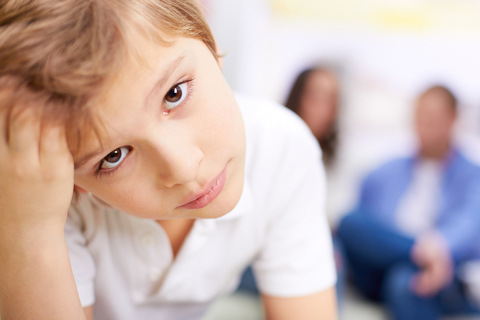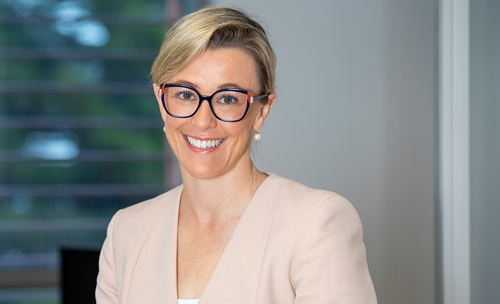The effects of separation (and divorce) on children

It has long been said “it is not separation that affects children, it is conflict”. No matter how amicable your separation (or divorce) may be, the process is still difficult and likely to be stressful. With children, you have the added pressure of ensuring all your actions are in the best interests of the children.
When parents separate, unfortunately, the children often become the meat in the sandwich. They find themselves in a position that they cannot get out of and are forced into a position where they see a side of their parents, they wished they never did. And on reflection, the parents ultimately wish they never exposed their children to any of their inappropriate behaviour.
The loss of your marriage or long-term relationship is a grief that no one expects. It often brings with it, intense sadness and anger. There are endless handbooks on how to deal with it, but in the acute trauma of separation, it is difficult to protect your children from the conflict and animosity that comes from the breakup.
Children exposed to parental conflict are at a higher risk of behavioural problems
What needs to be front of mind is that research suggests that children who are exposed to a high level of conflict and animosity between parents are at greater risk of developing emotional, social and behavioural problems. They are also likely to experience difficulties with concentration and educational achievement.
Frequent and intense conflict or fighting between parents has also been shown to have a negative impact on children’s sense of safety and security. This is fundamental to developing healthy relationships with others, including their parents.
The court has identified a number of highly problematic behaviours in parents, including:
- asking your child to be the messenger to carry hostile communications to the other parent;
- asking your child inappropriate and intrusive questions about the other parent;
- asking your child to hide information from the other parent;
- communicating with your child that they are not to say anything nice about the other parent whilst spending time with you; and
- demeaning, denigrating or putting down the other parent whilst the child is in hearing shot or present.
Children should feel safe communicating with both parents openly, without fear of increasing any tension and conflict.
Arranging time for children to spend with each parent and significant others
We recommend, as early as you can, trying to reach agreement with the other parent about arrangements for the children to spend time with each parent; and, where the situation is appropriate, for time spent with both parents.
If relevant to your family needs, consider how the children are going to maintain relationships with significant others, including grandparents and cousins from the other side of the family.
This provides the children with stability and a knowledge of what is ahead. It also avoids any opportunity for your child to be forced into a position of deciding when to see the other parent.
Formalising the time children spend with each parent
You can formalise whatever agreement can be reached by way of Consent Orders (which are filed with the Court) or a Parenting Plan, signed and dated by each parent (and not registered with the Court).
A family lawyer will be able to assist you with this to ensure your agreement is documented in a way that assists you in the event there is conflict in the future as to what was agreed.
Effects of COVID-19 on children and parenting
It is suggested that during this difficult time of the coronavirus pandemic, we should strive for “good quality parenting”.
Good quality parenting is parenting that provides structure, warmth, emotional support and positive reinforcement. All these need to be front of mind at the time of separation as they are qualities that reduce the impact of conflict. By just walking in the steps of your children during this time can assist in adopting good quality parenting.
Engaging legal assistance as early as possible, even prior to separation if this can occur, should assist parents in reducing the level of conflict children are exposed to during this difficult time.
Besides a family lawyer who has experience in children’s matters, we would always encourage parents to engage with their own counsellor or psychologist for personal assistance on how to manage this chapter of your life.
Resources for parents experiencing difficulties during separation
There is a broad range of resources and services available to parents and children experiencing difficulties during separation.
Family Relationships Advice Line
The Family Relationship Advice Line has a range of fact sheets and other information on family law services, including:
-
- children's contact services;
- counselling;
- family dispute resolution;
- parenting orders program; post-separation cooperative parenting; and
- supporting children after separation.
They can be reached by phone on 1800 050 321 or via their website at www.familyrelationships.gov.au
Lifeline
Lifeline is a national charity providing all Australians experiencing a personal crisis with access to 24-hour crisis support and suicide prevention services.
They can be reached by phone on 131 114 or via their website at www.lifeline.org
Kids Help Line
Kids Help Line is a telephone service providing counselling for children and young people. They can be reached by phone on 1800 551 800 or via their website at www.kidshelp.com.au
Relationships Australia
Relationships Australia provides support groups, counselling, courses for parents who need assistance with separation and also for individuals who have experienced domestic violence (both the victim and the perpetrator).
Relationships Australia can be reached by phone on 1300 364 277 or alternatively visiting their website at www.relationships.org.au
Get help from a family lawyer
At Meillon & Bright, our Legal Practice Director, Kristie Smith is an experienced Independent Childrens’ Lawyers who has been involved in many high-conflict parenting cases. If you’d like to discuss your family law matter with a lawyer or arrange an initial consultation, contact our Perth or Sydney office.
Contacting Meillon & Bright
Family Lawyers Perth & Sydney
The information contained in this article is of general nature and should not be construed as legal advice. If you require further information, advice or assistance for your specific circumstances, please contact Meillon & Bright Family Lawyers.

